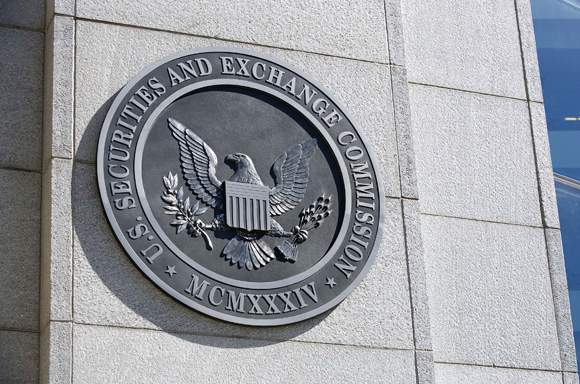Follow-on actions from previous years helped goose the numbers; fewer original cases filed last year than in 2009
U.S Securities and Exchange Commission officials have been citing a jump in the number of enforcement actions last year as proof that an overhaul of the agency's investigative force is bearing fruit. The claim isn't supported by a detailed examination of the statistics.
SEC Enforcement Director Robert Khuzami said in November that the unit filed 735 actions in fiscal 2011, “a record- breaking performance during a period of resource constraints.” Citing the numbers, SEC Chairman Mary Schapiro told a Washington conference last week that the agency's changes “are already producing record results.” The SEC also noted the record numbers in justifying its 2013 budget request to Congress.
Still, more than 230, or 31 percent, of the 735 matters weren't new. They were so-called follow-on administrative proceedings that institute penalties in cases that already had been brought, the examination by Bloomberg News shows.
Excluding those actions, such as barring people who've already been found guilty of fraud from working in the industry, the SEC filed 499 original cases last year, fewer than the 520 in 2009, the year before the reorganization. In 2009, 144, or 22 percent, of the 664 total actions were follow-on proceedings.
“There's so much noise in the reporting system that we really can't tell whether the restructuring is working or not,” said James Cox, a securities law professor at Duke University.
The SEC has been under pressure for more than three years to show results. Lawmakers and investors have faulted the agency for missing Bernard Madoff's multibillion fraud and for doing too little to hold Wall Street accountable for the financial market turmoil of 2008. At the same time, the agency, which has said it lacks sufficient resources to do its job, has struggled to get additional funding from Congress. Schapiro is scheduled to defend her budget request March 6 before a House panel.
‘Unique' to SEC
SEC spokesman John Nester, who declined to comment specifically on the agency's tally, said that follow-on actions are important tools in enforcement.
“The remedies we obtain through administrative proceedings -- such as preventing law-breaking securities professionals from ever working in the industry again -- are unique to the SEC and are critical to our ability to deter future misconduct by Wall Street professionals,” Nester said in a statement.
Khuzami, 55, who joined the agency in 2009 only months after Madoff's fraud was exposed, revamped the division, eliminating a layer of management, adding front-line investigators and establishing specialized units in 2010 to focus on areas such as hedge funds, market abuse and structured products. The agency said it was the most significant reorganization of the unit since it was established in 1972.
Talent and Grit
When the 2011 statistics were released in November, Khuzami praised Schapiro's leadership in his statement. “This remarkable accomplishment has its roots in the talent, grit, and determination of the staff, as well as their creativity and willingness to consider new tools and approaches to stopping and deterring fraud and misconduct,” he added.
Schapiro, 56, in her speech last week to the Practicing Law Institute, said the enforcement actions that stemmed from Khuzami's reforms included “some of the most complex cases we've ever worked on.”
The 2011 numbers cited by the SEC include follow-on actions for cases filed last year and in previous years, sometimes prior to Khuzami's restructuring. Many of the actions required little further investigation.
Counting Twice
For example, Mark Kurland, a former fund manager, was sued by the SEC in October 2009 in connection with the Galleon insider trading case. Kurland pleaded guilty to criminal charges in May 2010 and was later sentenced to 27 months in prison. In February 2011, the SEC submitted a four-page follow-on action barring Kurland from association with any investment adviser. That was added to the division's tally.
In another matter, the SEC sued John Scullin in May, claiming he falsely represented himself as an accountant licensed to practice in Virginia. Days later, after the court entered a final judgment against Scullin, the SEC filed a follow-on administrative order to suspend him from practicing as an accountant before the agency. The SEC counted both actions in the 2011 results.
To be sure, the agency obtained about $928 million in financial penalties last year compared with $345 million in 2009, and also issued 578 formal orders of investigation, up from 496 in 2009. A formal order authorizes staff to compel testimony and issue subpoenas.
Delisting Companies
The agency also tallied more so-called “delinquent filings” cases last year since at least 2006. Those cases often entail sanctioning or delisting companies that have stopped filing public statements. Typically, they require little investigation and aren't related to work by the specialized units.
Taken together, follow-on administrative proceedings and delinquent filings cases made up 49 percent of the enforcement division's actions in fiscal 2011, compared with 36 percent in 2009, before the enforcement division was reorganized. At the same time, the SEC brought the fewest number of accounting-fraud cases in at least a decade in 2011.
“I'm always skeptical of enforcement statistics because there are many different ways the numbers can be presented,” said Bradley J. Bondi, an enforcement partner at Cadwalader, Wickersham & Taft LLP and former counsel to two SEC commissioners. “The bigger issue is whether the enforcement program is working to deter securities fraud.”
--Bloomberg News--







